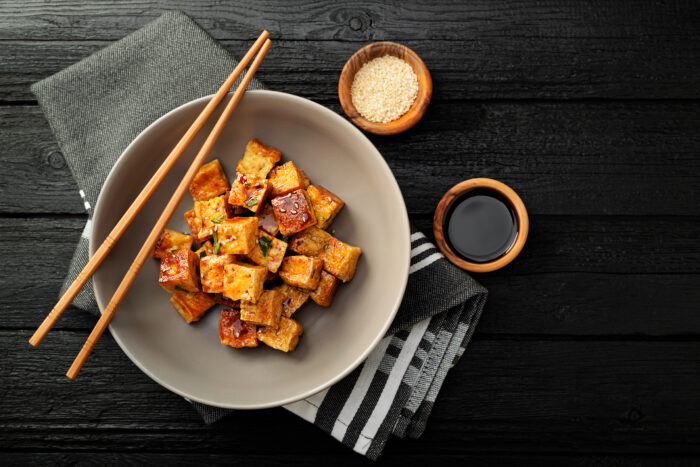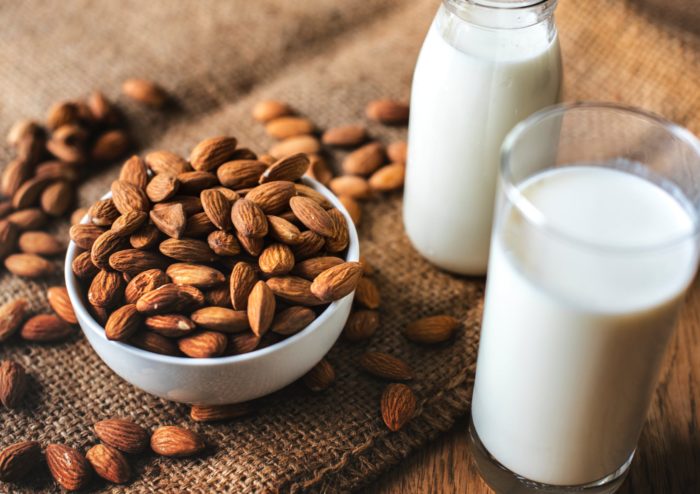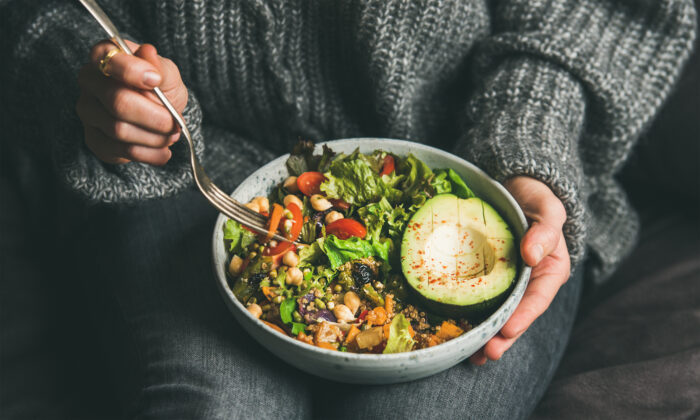Whether you’re interested in exploring a plant-based diet for your health, the environment, animal welfare, religion, or other reasons, there are some helpful basics to keep in mind when it comes to nutrition to set yourself up for long-term success.
What is a Plant-Based Diet?
A plant-based diet is a way of eating that focuses on whole plant foods, including fruits, vegetables, nuts, beans, whole grains, and soy products like tofu. While some people following a plant-based diet include small amounts of meat or other animal products, others choose not to eat any. The term “vegan” refers to a diet that excludes all animal products, including dairy and eggs, while “vegetarian” describes a diet that avoids meat but includes dairy and eggs. Because of this variety, “plant-based” is often used as an umbrella term that covers different eating styles, from the flexible to more strict.
I like the term plant-based because when it comes to nutrition it puts the focus on what is included, rather than what foods are excluded. You can eat a vegan diet filled with certain chips and candy that just happen to be vegan you want! I also want to define what I mean by diet, which is just a pattern of foods eaten habitually overtime rather than what I call a capital D “Diet”, which is specific food restriction for weight loss or other medical reasons. A balanced plant-based diet can be a lifelong sustainable way of eating.
As a dietitian, here are the top things I want anyone considering a plant-based diet to know.
Top 5 Tips to Succeed on a Plant-Based Diet
1. You can get more than enough protein.
Most vegetarians and vegans eat more than the recommended amount of protein. Proteins are made up of amino acids, and all of the essential amino acids (those that we must get from food because our body can’t make them) are found in a variety of plant foods. These include beans, grains, nuts, nut butters, seeds, soy foods, and even some vegetables. Including a protein rich food at every meal will help you meet your needs. It can be harder to reach your protein goals if you are avoiding soy foods because they are one of the few plant foods high in the essential amino acid lysine. Which brings us to our next point…
2. Don’t be afraid of soy.
Whole soy foods like tofu, tempeh, edamame, and soy milk are some of the most versatile and healthy high protein foods. Soy foods are nutrient dense and provide heart healthy polyunsaturated fat, fiber, vitamins, and minerals. They are also low in heart damaging saturated fat. For a deeper dive on the research done about soy, this article from Harvard’s School of Public Health offers great insights. One of the main takeaways is that soy foods can be eaten safely several times per week and likely gives us health benefits when it’s chosen over red and processed meat.
3. Your gut is adaptable.
If you decide to make a big diet change overnight and start including a lot more beans, nuts, fruits, and vegetables, your gut might be a little shaken up at first! 95% of Americans don’t eat enough fiber and the additional fiber is fantastic for our gut health. However, a sharp increase like that can be digestively uncomfortable. Experiencing some initial bloating and gas does not mean these foods are bad for us and our body can’t tolerate them. But it is why I typically recommend a slower shift rather than going fully plant-based overnight.
There’s a learning curve for our meal planning and our gut!
Our gut and microbiome are highly adaptable and will usually get used to (and appreciate) the fiber boost, so hang in there. To ease the transition, make sure you drink plenty of water when you start eating more fiber to help it move smoothly through your system. It also helps to vary your protein sources beyond beans (some of the best sources of fiber out there!) to include lower fiber proteins like firm tofu, soy milk, seitan, and hemp seeds.
4. You can still enjoy frozen, canned, and convenience foods.
Plant-based doesn’t mean “made from scratch” or “fresh whole foods only”. Fruit leathers, trail mix, dry roasted bean snacks, and popcorn are all types of processed foods that are plant-based. Frozen and canned produce, premade bag salad, and prepackaged marinated baked tofu can make putting together a weeknight meal much faster while still being very nourishing.
5. This is an opportunity to expand your palate and experiment with food.
Often the focus of plant-based eating becomes what level of animal products are you trying to restrict. But if we focus on what we’re adding to our plates to crowd out those foods instead? Have you ever tried nutritional yeast, tempeh, or hemp seeds? How about applesauce as a baking swap for eggs or a white bean alfredo sauce? There are so many creative and nutritious ways to include more plants in our meals. Embrace the process of trying new foods and making different ingredient swaps in your favorite dishes.
Check out some of my favorite plant-based recipes from our blog to get started: Air Fryer Marinated Tofu, Squash, Chickpea and Red Lentil Stew, and Overnight Chia Pudding.
I love helping my patients figure out how to make a plant-based diet work for them. If you would like support with planning a well-balanced plant-based diet at any stage, schedule an appointment with an Avance Care Dietitian today!




